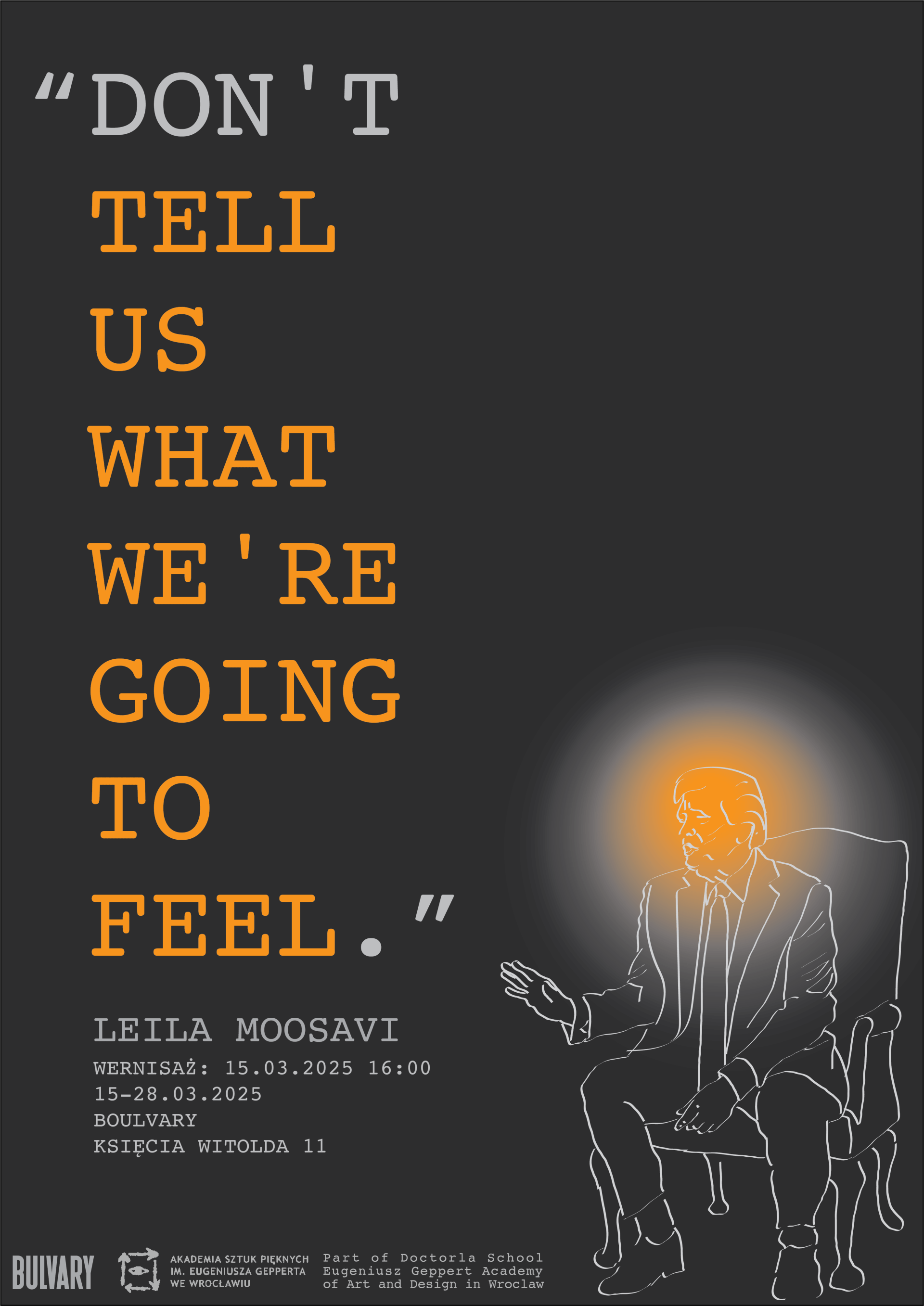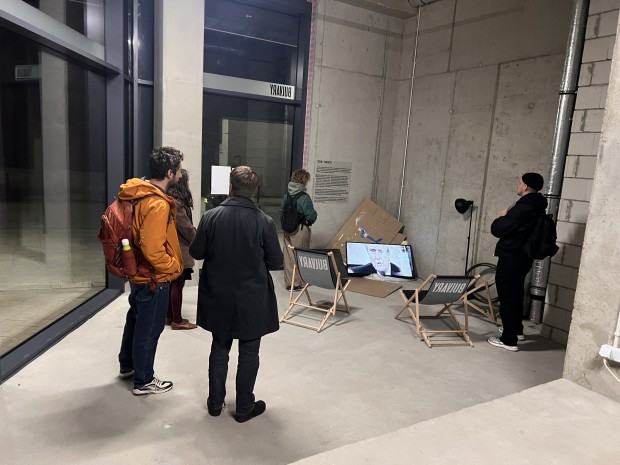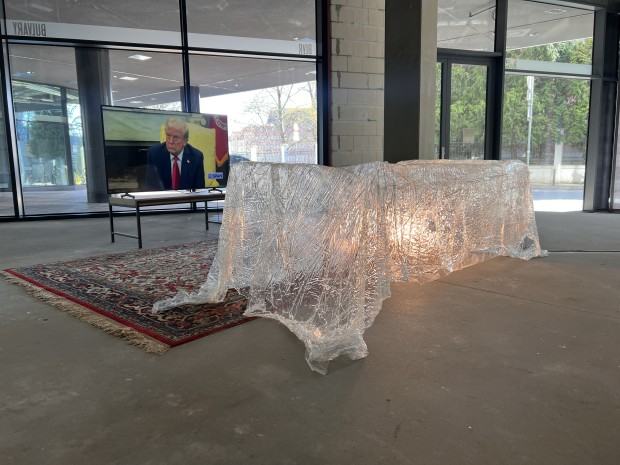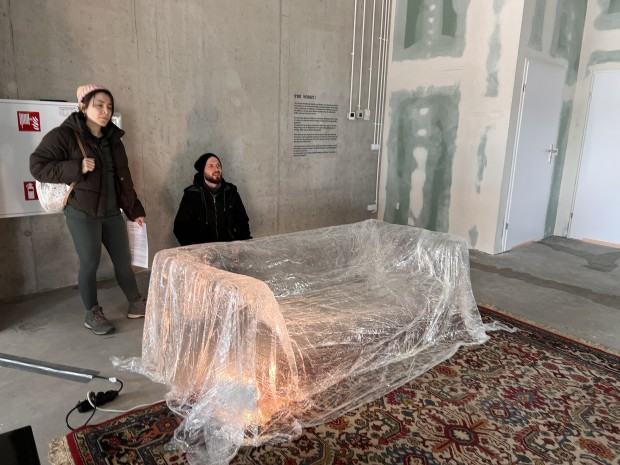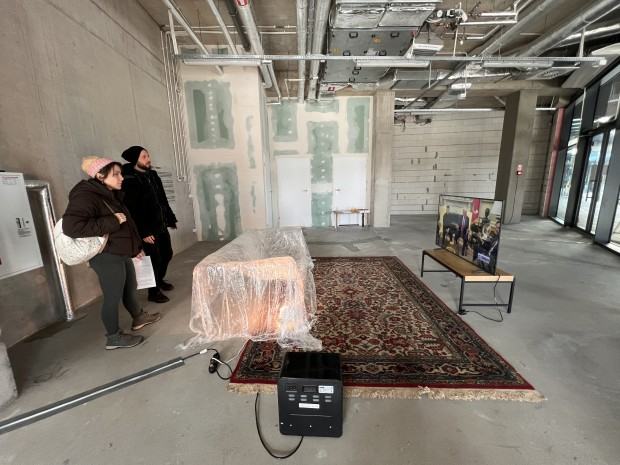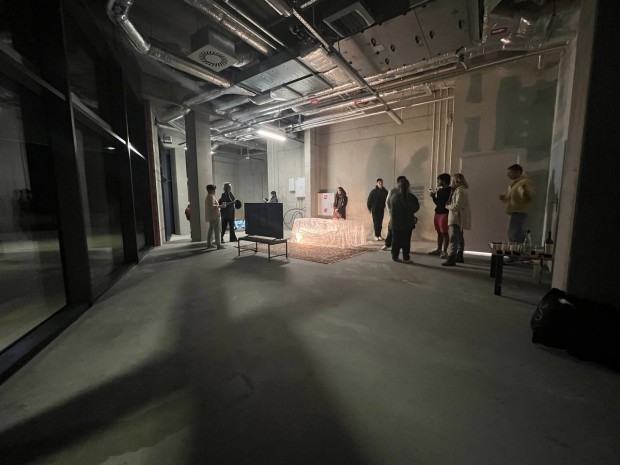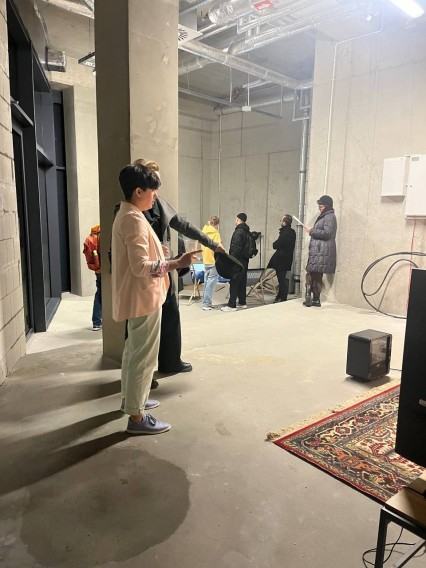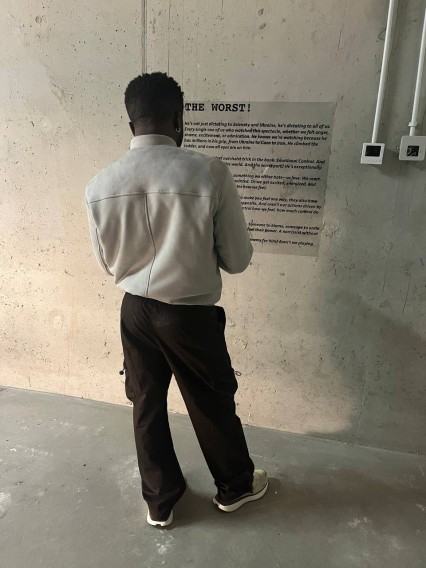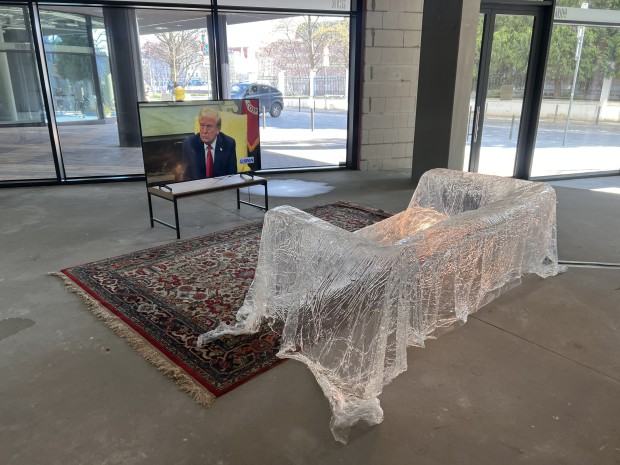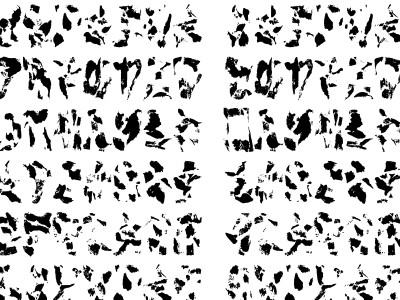Don’t Tell Us How We’re Going to Feel

Bulvary
Księcia Witolda 11
Donald Trump, in his recent meeting with Ukrainian President Volodymyr Zelensky, provided a striking example of narcissistic behavior. Many people were outraged, others felt embarrassed, and many applauded him. His actions sparked countless debates and even inspired satire.
But one question remained unanswered: “Why did he behave this way?”
In response to the event, opposition media largely turned to comedy, exaggerating Trump’s behavior to entertain audiences while highlighting its absurdity.
However, this exhibition takes a different approach. Rather than just mocking, it aims to dig deeper—to explore why individuals with this kind of personality rise to power and how they ultimately come to behave this way.
We often assume that narcissists love themselves, that their behavior stems from extreme confidence and a belief in their own perfection. But in reality, the opposite is true. Narcissists don’t love themselves; they despise themselves.
Their self-worth is so fragile that they require constant validation from those around them. Deep down, they feel powerless, which is why they are obsessed with proving their power.
THE WORST!
This piece explores the phenomenon of emotional manipulation by powerful narcissistic figures, using Trump as a central example. It examines how such figures provoke collective emotional reactions—anger, excitement, outrage—and how that repeated emotional stimulation subtly influences public behavior. Through a blend of visual metaphor and conceptual reflection, the work questions who truly holds power: the one who speaks, or the one who reacts?
THE BEST!
Inspired by the myth of Narcissus, this work delves into the psychological fragility behind narcissistic leaders and how their relentless thirst for validation drives them to dangerous extremes. It connects historical and contemporary examples of dictators and cult figures, emphasizing that beneath their confident façade lies a deep, self-destructive insecurity. The piece challenges the audience to reconsider whether ridicule weakens or empowers such individuals.

